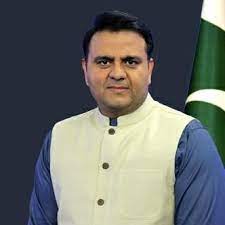The client lists of Swiss banks are among the world’s most closely guarded secrets, protecting the identities of some of the world’s wealthiest people as well as hints as to how they came to be so wealthy, New York Times reports.
Now, an extraordinary data leak from Credit Suisse, one of the world’s most recognisable banks, is revealing how the bank held hundreds of millions of dollars for heads of state, intelligence officials, sanctioned businessmen, and human rights violators, among others.
The German newspaper Süddeutsche Zeitung, a self-described whistleblower, leaked data on more than 18,000 bank accounts, totalling more than $100 billion. The newspaper shared the information with the Organized Crime and Corruption Reporting Project, a non-profit journalism organisation, and 46 other news organisations worldwide, including The New York Times.
The data includes accounts opened from the 1940s until well into the 2010s but does not include the bank’s current operations.
Senior intelligence officials and their children from several countries that collaborated with the US to fight against terrorism also had money stashed at Credit Suisse.
General Akhtar Abdur Rahman Khan, the head of Pakistan’s intelligence agency, was instrumental in channelling billions of dollars in cash and other aid from the United States and other countries to the mujahedeen in Afghanistan to support their fight against the Soviet Union.
An account was opened in the names of three of General Khan’s sons in 1985, the same year President Ronald Reagan called for greater oversight of aid going into Afghanistan. (The general was never charged with stealing aid money.) According to the leaked records, the account grew to hold $3.7 million years later.
Akbar and Haroon Khan, two of the general’s sons, did not respond to requests for comment from the reporting project. In a text message, Ghazi Khan, a third son, said that information about the accounts was “not correct,” adding, “The content is conjectural.”
King Abdullah II of Jordan and the two sons of former Egyptian strongman Hosni Mubarak were listed as having millions of dollars in Credit Suisse accounts. Sons of a Pakistani intelligence chief who helped funnel billions of dollars from the US and other countries to the mujahedeen in Afghanistan in the 1980s were among the account holders, as were Venezuelan officials embroiled in a long-running corruption scandal.
According to the leak, Credit Suisse opened accounts for and continued to serve the ultrawealthy and people with questionable backgrounds who could have been discovered by running their names through a search engine.
According to Daniel Thelesklaf, the former head of Switzerland’s anti-money laundering agency, Swiss banks have long faced legal prohibitions on accepting money linked to criminal activity. However, he claims that the law is rarely enforced.
In a statement, Candice Sun, a bank spokeswoman, said, “Credit Suisse strongly rejects the allegations and inferences about the bank’s purported business practises.” She stated that many of the accounts in the leak date back decades to “a time when financial institutions’ laws, practises, and expectations were very different from where they are now.”



